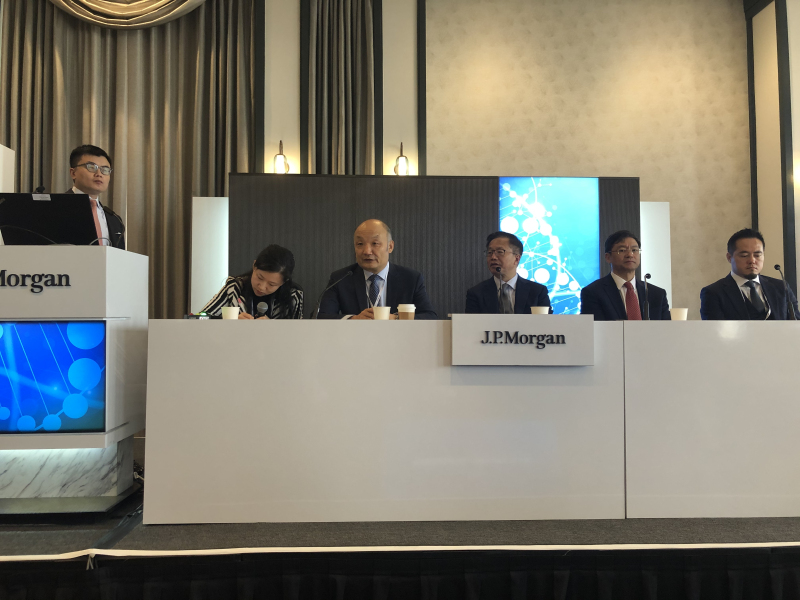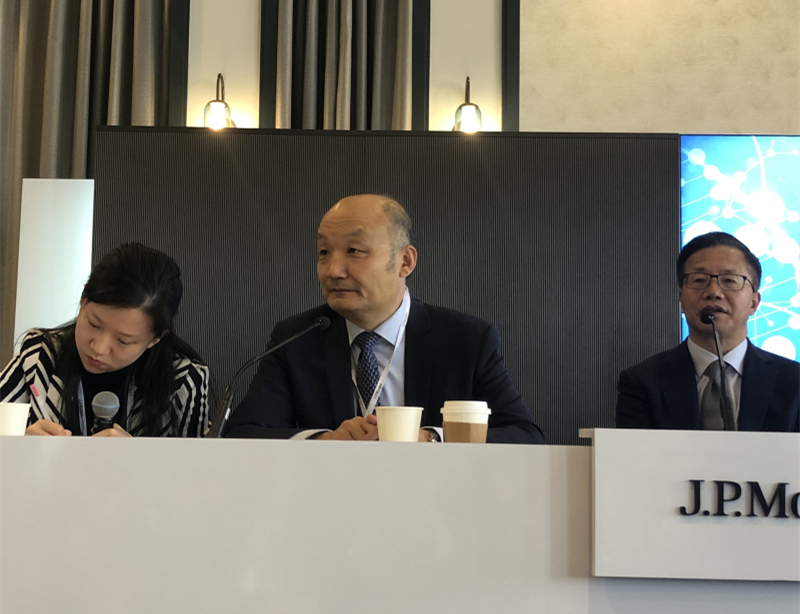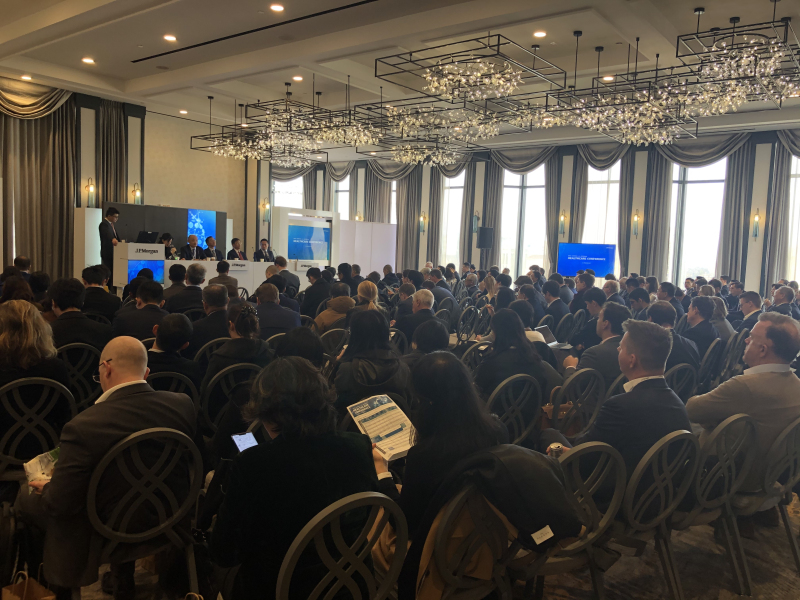 News & Events
News & Events
 2020.01.21
2020.01.21
 4284
4284
Invited by J.P. Morgan, Song Ruilin, Chairman of China Pharmaceutical Innovation and Research Development Association (PhIRDA) participated in the 38th J.P. Morgan Annual Healthcare Conference in San Francisco on January 13-16 and delivered a speech on the Luncheon Panel titled PhIRDA on January 15.

Panelists
The panel was moderated by Zhang Ling, Head of Healthcare and Technology Investment Banking in China of J.P. Morgan. Chairman Song, Michael Yu, CEO of Innovent Biologics Inc., Frank Zhang, Chairman and CEO of Genscript Corp. and Michael Chan, Senior Vice President Head of International Issuer Services of Hong Kong Exchanges and Clearing Limited (HKEX) participated in the panel. From the views of macro policies, industry development and financing, they reviewed the progress that China’s pharmaceutical industry had made in policies and review and approval system in 2019, analyzed the effect of the 4+7 Centralized Drug Procurement and the new market environment based on the latest policies, discussed the importance of international financing and the role that the financing platforms like HKEX are playing in China’s pharmaceutical innovation and made expectation of the future of China’s pharmaceutical innovation and international cooperation in 2020-2025.
In the past 2 years, China’s pharmaceutical industry had undergone significant change, however, all the participants were confirmed with their professional views and optimism that the future of China’s pharmaceutical innovation is bright. In 2019, China made great progress in the development domestic pharmaceutical innovation, as a proof, domestic innovative products with good quality have more market potential and resistance against the price reduction. It is obviously that China is transforming from a pharmaceutical imitator to innovator and it will continue to encourage pharmaceutical innovation in every aspect and help the pharmaceutical enterprises to face the reform with an innovative mind.

Chairman Song (mid) made a speech in the panel
Chairman Song pointed out that China will have two major changes in the future: one is to strengthen the cooperation in international M&A and R&D, the other is China’s unique advantage-natural products, which will become the global “first in class” in the future. The next 5 years can be treated as the nirvana for China’s pharmaceutical industry and we should be confident about that.
With the attention for China as the second largest global pharmaceutical market, this year’s panel was also fully packed and of great importance. The panelists introduced China’s pharmaceutical industry from different aspects to help the participants make full preparation for the incoming challenges. The panel was a top-level platform for the participants across the world to have a better understanding of China’s pharmaceutical industry and facilitate the international cooperation and R&D.

Luncheon Panel of China Pharmaceutical Innovation and R&D
About the Annual J.P. Morgan Healthcare Conference:
The annual J.P. Morgan Healthcare Conference is the largest and most informative healthcare investment symposium in the industry, bringing together industry leaders, emerging fast-growth companies, innovative technology creators, and members of the investment community.
What is today known as the annual J.P. Morgan Healthcare Conference began in 1983 and was hosted by Hambrecht & Quist (H&Q). H&Q was acquired by Chase in 2000 and a year later Chase was acquired by J.P. Morgan. At its infancy, the conference featured just 20 companies, had about 200 attendees and focused on the biotech industry.
Today, while it is still at the Westin St. Francis in San Francisco, the annual J.P. Morgan Healthcare Conference brings thousands of investors from around the world together. The hundreds of companies presenting run the gamut, from start-ups to those with more than $300 billion in market cap, and encompass the entire global healthcare landscape, including pharmaceutical firms, healthcare service providers, profit and not-for-profits, and medical device companies.

 News & Events
News & Events
 phirda
phirda  2025-04-25
2025-04-25
 45
45

 News & Events
News & Events
 2025-04-17
2025-04-17
 84
84

 News & Events
News & Events
 2025-03-31
2025-03-31
 81
81